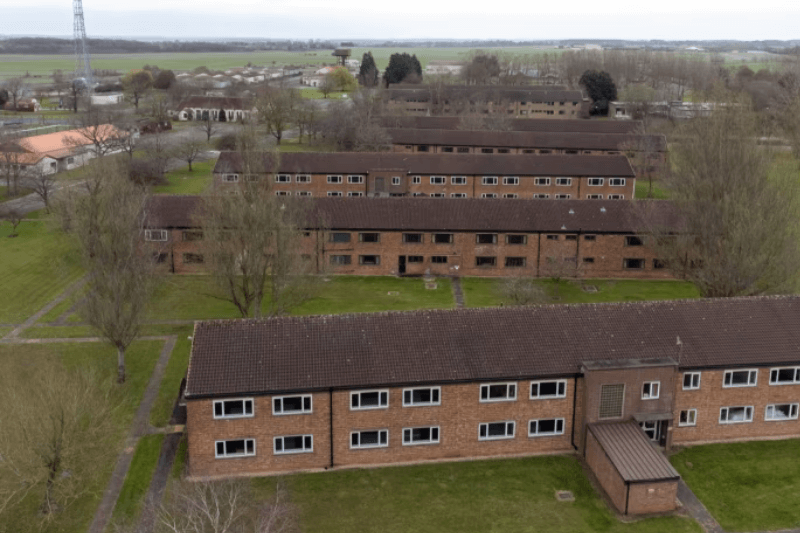
Asylum Seekers’ Housing Plans at Former RAF Stations: High Court Upholds Decision
In a recent ruling, the High Court gave the green light for the UK government’s plans to repurpose two disused RAF stations for accommodating asylum seekers. The decision, following a legal challenge by West Lindsey District Council and Braintree District Council, paves the way for utilizing RAF Scampton in Lincolnshire and MDP Wethersfield in Essex. This article delves into the details of the court’s decision and the implications of the government’s move.
Legal Challenges and High Court Ruling
The legal battle unfolded in a recent hearing at the High Court, where West Lindsey District Council and Braintree District Council, along with a resident, contested the government’s plans. Mrs Justice Thornton, presiding over the case, dismissed the claims, allowing the Home Office to proceed with its proposal.
Utilizing RAF Scampton: A Controversial Decision
One focal point of contention was the proposed use of RAF Scampton in Lincolnshire to house up to 2,000 male asylum seekers. The historical significance of this site, which served as the base for the Dambusters during World War Two, added complexity to the debate. Despite concerns raised during the hearing, the court’s decision means the government can move forward with its plans.
Keep Reading
MDP Wethersfield: Current Situation and Future Plans
At present, MDP Wethersfield in Essex is already hosting between 400 and 500 asylum seekers in refurbished barracks and portable buildings. The court’s decision implies that plans to house up to 1,700 single men at this location can proceed. This raises questions about the impact on the local community and the duration of migrants’ stay, a concern brought up during the legal challenge.
Government’s Justification and Response
The Home Office, supported by the Department for Levelling Up, Housing, and Communities, justified the move by citing the unprecedented levels of asylum seekers, particularly exacerbated by the strains on the asylum system due to the Covid-19 pandemic. The government approached the Ministry of Defence and other departments to explore the use of Crown Estate assets for short-term accommodation solutions.
Legal Perspective on Statutory Responsibilities
Mrs Justice Thornton, in her ruling, emphasized the statutory responsibility of the Secretary of State for the Home Department to provide accommodation and support to asylum seekers and their dependants to prevent destitution. The court acknowledged the challenging circumstances, especially the surge in asylum seekers since the onset of the pandemic.
Next Steps and Potential Appeals
Following the ruling, Braintree District Council expressed disappointment and signaled its intention to seek permission for an appeal. The implications of potential appeals and the stance of local councils will likely shape the ongoing narrative surrounding this controversial decision.
Political Reactions and Future Developments
Sir Edward Leigh, Conservative MP for Gainsborough, expressed disappointment at the result for RAF Scampton. He indicated that West Lindsey District Council intends to appeal, highlighting the ongoing political and legal dynamics at play.
The High Court’s decision to uphold the government’s plans marks a significant development in the ongoing discourse on asylum seekers’ accommodation. As legal battles continue and political figures express their opinions, the fate of RAF Scampton and MDP Wethersfield as housing locations for asylum seekers remains uncertain.




